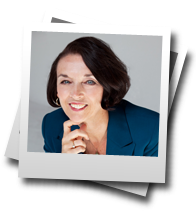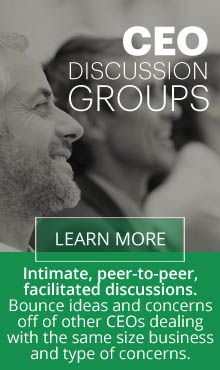 A person I was speaking to recently said, “At this stage of my life, I’m more about becoming than doing.” It got me thinking about the two. Are there life stages or professional success stages where one thinks more about becoming something rather than getting stuff done? Can one exist without the other? Is it all about equal balance? Or does the balance shift and why? Are there gender, generational or cultural ramifications? Does one have to have a certain level of conscious awareness even to ask the question?
A person I was speaking to recently said, “At this stage of my life, I’m more about becoming than doing.” It got me thinking about the two. Are there life stages or professional success stages where one thinks more about becoming something rather than getting stuff done? Can one exist without the other? Is it all about equal balance? Or does the balance shift and why? Are there gender, generational or cultural ramifications? Does one have to have a certain level of conscious awareness even to ask the question?
I’m afraid in this article you’ll get more questions than answers. But it’s a topic worth thinking about and going back to over and over
Here are some of my thoughts.
Our actions (doing) arise out of our attitudes (habits of thought). If our attitudes are limited, our actions are, too. Our attitudes are a part of our self-concept. So if we shape our self-concept (becoming), we are also shaping our actions (doing). Therefore it pays to develop yourself so you can be the greater person who can generate more effective action and achieve better results.
Here’s an example. How many outside salespeople say “I could never go after a big account like that!’ or the person who says, “I could never have an impact on the world beyond my small town.” Their self-concept is limited, it keeps them thinking small. So they don’t try. If they could grow their perception of themselves, they could easily generate the actions necessary to get out of the self-fulfilling prophecy.
But how do you grow that self concept and ‘become’ that bigger person? Some people don’t even realize they are caught in a self fulfilling prophecy. They don’t realize that they don’t know what they don’t know. You know some things. You know about some things that you don’t know. (like Chinese exists even if you don’t know how to speak it). But when you’re 5 years old, you don’t know what it’s like to be a 15 year old. And if you’re 15, you don’t know what it’s like to be 45.
Openness. The people who value ‘becoming’ are always looking for things to show them what they don’t even know exists. Reading, going to seminars, investing in personal and professional development and traveling (such as to Kenya) are ways to increase your ‘becoming’ by stimulating yourself to experience something you didn’t know existed.
Doing something new. Sometimes we need to risk trying new things out to develop confidence in ourselves doing something new. This is how ‘doing’ compliments ‘becoming’. It’s in challenging ourselves to face something fearful, push through the fear and resistance, and doing it anyway, we get a sense of our personal power, which expands our level of ‘becoming.’
Understanding your brain. The base level of your brain is the reptilian brain. It wants you to survive and stay safe like a lizard laying on a rock in the sun, risking nothing and just being safe and stable. It resists anything new and risky and makes you feel anxious about change. The mammalian part of your brain is full of emotion, gives meaning (maybe true, maybe false) to everything. The human part of our brain is all about cognition, understanding, being logical, thinking things through. It’s where language resides. If our thinking-self realizes that the reptilian anxiety and the mammalian fears are based in the past and don’t necessarily have to be part of the present and future, then we can detach from the fear and anxiety and know that fear is only False Evidence Appearing Real. Then we are much more likely to use our brain biology to serve our purposes. Examples are repetitive use of affirmations, visualization, reticular activation, focusing, neural linguistic programming (NLP), brainwave audios, etc. We can reshape our brains to react in a way consistent with who we want to be, rather than who we became through early childhood and other past experiences.
Boy, that’s a lot to think about. And it’s just the tip of the iceberg. When you think about it, the personal development movement starting with James Allen and Napoleon Hill is all about ‘becoming’. Each of those thought leaders includes action (doing) in their prescriptions for success.
So maybe the biggest thought is that unconscious ‘doing’ is just ‘activity’. But ‘doing’ that is planned in conjunction with ‘becoming’ the person you want to become is where growth and fulfillment lies.

 Jeri Quinn from Driving Improved Results is an executive coach, management consultant, speaker and author who focuses on communication in her work with executives and companies. She is the author of The Customer Loyalty Playbook, 12 Game Strategies to Drive Improved Results in Your Business. With more than 40 years as a serial entrepreneur.
Jeri Quinn from Driving Improved Results is an executive coach, management consultant, speaker and author who focuses on communication in her work with executives and companies. She is the author of The Customer Loyalty Playbook, 12 Game Strategies to Drive Improved Results in Your Business. With more than 40 years as a serial entrepreneur.

